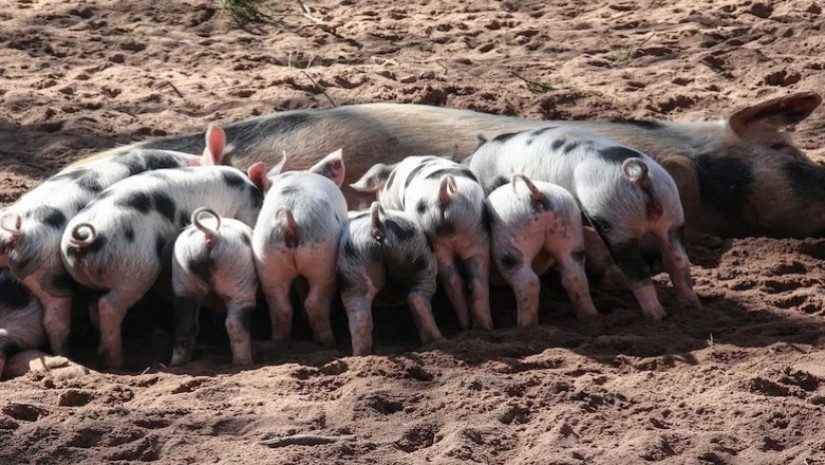This year, Georgia bought 2,900 tons of live pigs worth more than $20 million. The main importing country is Russia. Last year, Russia was the main importer followed by Belarus.
In 8 months of 2024, Georgia brought 12,853 tons of pigs worth $19.3 million from Russia. 24.4 tons worth $306.6 thousand from Denmark.
Imports of live and frozen pork are increasing every year.
It’s worth mentioning that the partnership fund and the Native Georgian company launched the "Project to Save Georgian Mountain Pig" in 2018. The total cost of the project, consisting of 5 stages, was to be $15 million. One of the goals of the project was to reduce dependence on imports and the rise of Georgia's endangered pig population.
Two years later, the Georgian Pig Breeding Association says that local production is on the verge of destruction.
"Build Agro Georgia" mainly sells its products in Georgia. Demand for pork is rising every year, but, unfortunately, it is satisfied by imports from Russia. Live cattle in large amounts is imported from Russia and is slaughtered in Georgia, due to the price, it is a higher priority than Georgian. The price of pork in Russia is very low, and the local market can’t compete with it," the Association president Lasha Morchiladze told Commersant.
In his words, price difference between Georgian pigs and cattle imported from abroad is minimal due to the increase in costs over cost price.
"The prices are not very different from each other, the difference is a maximum of 50 BYN. If the average price of pork imported from Russia is 9 GEL, local pork can cost 9.50 GEL.
"The prices do not differ much from each other, at most 50 tetri more. The average price of pork imported from Russia is 9 GEL, local pork costs 9.50 GEL.
Our local products are actually better than Russian ones. Moreover, the imported cattle are already grown and do not have the taste they should have.
Local farmers can’t compete with products imported from Russia due to the price. Local production is on the verge of grinding to a halt amid growing imports. In our country, we do not have any measures to protect local production. Unfortunately, imports are given more advantage over local production.
According to state regulations, we pay an additional GEL 100 for barley import," Lasha Morchiladze said in an interview with Commersant.


















